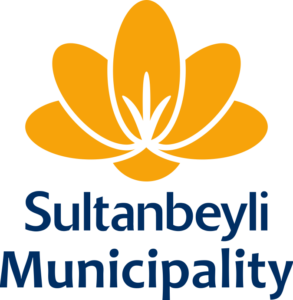
- This event has passed.
Integrated Social Service Governance Model After the Shock
Event Navigation

Bu etkinlikte, afet/salgın dönemlerinde sosyal hizmet sunumu için geliştirilen bütüncül yönetişim modeli sunulacak. Model sağlık afetlerinde sosyal hizmetlere en çok erişime ihtiyacı olan en kırılgan haneler ve kişileri belirlenmesine imkan sunuyor.
—–
The webinar will be organized as part of the series of events taking place within the Government After Shock program of the OECD’s Observatory of Public Sector Innovation on 17 November 2020. It will present an integrated governance model for social service provision during the disaster/pandemic. The model was developed relying on the lessons drawn out from the two district municipalities in Istanbul, namely Sultanbeyli and Maltepe Municipalities during the COVID-19 crisis.
The “Integrated Social Service Governance Model” was developed by Sultanbeyli Municipality, Maltepe Municipality and Argüden Governance Academy with the support of Marmara Municipalities Union through innovative design paying attention to views and recommendations of the internal and external stakeholders, paired with data-driven analysis for practical insights in order to improve the capacity and responsiveness. It is unique as a pro-active model which identifies the most vulnerable households and individuals for service provision during and after any health disaster.
PROGRAM
14.00-14.30 Opening Speeches
- Hüseyin Keskin, Mayor of Sultanbeyli Municipality
- Ali Kılıç, Mayor of Maltepe Municipality
14.30-15.15 Panel
Moderator: M. Cemil Arslan, Secretary General of Marmara Municipalities Union
Panelists:
- Mehmet Aktaş, Sultanbeyli Municipality Director of Strategy Development
- Bahadır Keşan, Maltepe Municipality Director of Strategy Development
- Erkin Erimez, Argüden Governance Academy Academic Board Member
- İnan İzci, Argüden Governance Academy Local Governance Expert
15.15-15.30 Questions and Answers
This event is a collaborative effort supported by:




Recording of the event
Event reflections
These reflections are from the event host.
Summary of the event
A webinar was organized for Integrated Social Service Governance Model which was developed by the partnership of Argüden Governance Academy, Sultanbeyli Municipality, and Maltepe Municipality in association with the Marmara Municipalities Union. The event was held under the initiative of “Government After Shock” that was promoted by Observatory of Public Sector Innovation (OPSI) which is affiliated with Organization for Economic Cooperation and Development (OECD). The Model aims contributing to the most effective use of decisions and resources during pandemics.
What was the most powerful idea, insight or realisation that came out of the event?
The Covid-19 pandemic hardest hit the cities across the world which are most populous human
settlements. As a result, the experienced health, economic and social crises brought forward the priority of improving pandemic resilience at cities. During the pandemic, both central and subnational authorities tackled with the problems and provided services at cities. Yet, taking into account of the lessons learnt, it came out that local governments need to have long term strategies and plans to deal with pandemics and similar crises. An integrated, participatory and data-based social service provision is needed to serve the most disadvantaged people during any pandemic.
What do we collectively need to keep talking about?
Anticipatory risk governance and integrated municipal service provision approach is significant area for further research and model development.
Reflecting back on the event, what key insights or conclusions can be shared about what should be “left behind” beyond the crisis? (ex. What has proven to no longer fit in the current context?)
The pandemic showed the unpreparedness of local governments in cities in terms of reaching out the vulnerable people. Many people were left helpless as they were living alone and in need of assistance. Unless they contacted public sector institutions, they were vulnerable to health, psychological and economic well-being risks.
Reflecting back on the event, what key insights or conclusions can be shared about what should be “kept” beyond the crisis? (ex. What has proven to be important, what were things introduced in crisis response that should be kept after?)
Local authorities need to improve the areas of crisis management, technological infrastructure, data
governance, fiscal management, human resource planning, social support and health of personnel as well as participation and partnerships with civil society and private sector actors.
Reflecting back on the event, what key insights or conclusions can be shared about what collectively we should “do differently” beyond the crisis?
Agility and resilience should become main areas of consideration for local government decision makers. Pandemic should be included into disaster policy and examined from the perspective of risk governance.


Recent Comments